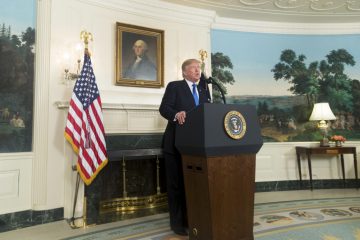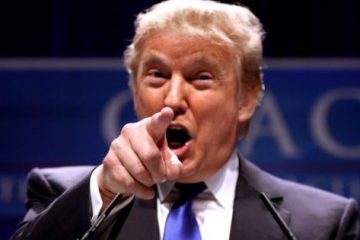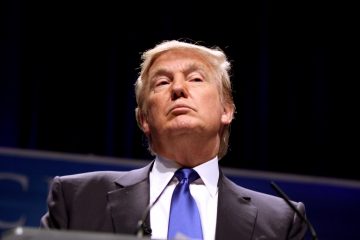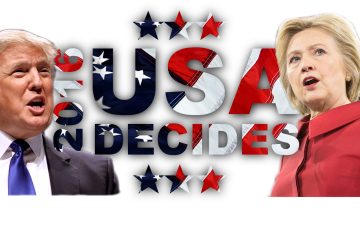Biden, López Obrador and the politics of migration: a return to the status quo?
Joe Biden’s presidential victory has brought temporary relief for many undocumented and mixed-status families in the US. Biden promised to reverse several of Trump’s executive orders on immigration and refugee policy within his first 100 days in office including reinstating the Deferred Action for Childhood Arrivals (DACA) program, ending the Migrant Protection Protocols (MPP) also known as “Remain in Mexico,” and creating a “road map” to citizenship for the approximate 10.5 million undocumented immigrants in the US. While Biden’s immigration agenda contains federal and local level priorities, little emphasis has yet been placed on the bilateral scale with the US’s southern neighbour, Mexico. Yet, bilateral immigration negotiations should be a priority for administrations on both sides of the border. In …
The Ineffective International Response to the Rohingya Crisis ─ A Paradox
The longstanding Rohingya crisis in Myanmar has generated massive human rights violations, becoming a humanitarian disaster. It is not only an internal matter for Myanmar, as it has destabilized the regional tranquility of South and Southeast Asia and triggered a global outcry. In this article, I will illustrate why major states, such as China, India, Russia, and the US, have adopted a policy of overlooking the Rohingya crisis. I have intentionally excluded the potential for a prominent leadership role from the already fragile Muslim world because of both their general absence from the central world leadership and their preoccupation with their own domestic crises. The Rohingya are the largest community among eight prominent Muslim groups in Myanmar and have lived in its Rakhine State (formerly Arakan) for generations. They are envisaged by the nation’s government and Buddhist population as illegal Bengali immigrants who came from what is …

Trump’s Nuclear Gambit Threatens US Security
Three years ago, US-Iranian relations could not have been better. Once declared part of the ‘Axis of Evil’ by then-president George W. Bush, the Iran Nuclear Deal signed by his successor Barack Obama heralded a new age of more constructive ties with Tehran and the promise of greater nuclear security. While critics raised concerns that Iran would renege on the deal, these fears had proven unfounded so far – the IAEA confirmed that Iran has complied with its obligations under the agreement. Nonetheless, the Trump administration withdrew the US from the nuclear deal. Additionally, Trump has re-imposed all sanctions removed in 2015. With trust between Washington and Tehran in tatters and US carrier groups deployed to the Persian Gulf, the …

WILL HISTORY REPEAT ITSELF WITH PRESIDENT TRUMP’S TRADE WAR WITH CHINA?
The iconic statue of the first American postmaster general Benjamin Franklin greets visitors to the Old Post Office Pavilion in the heart of the US capital: Washington, DC. The edifice is now home to the luxurious and controversial Trump International Hotel on Pennsylvania Avenue at the mid-point between the US Capitol Building and the White House. The hotel webpage invites guests to “share tea” in the Benjamin Bar to discuss “social and economic affairs” as it was the “‘established custom’” in colonial America. It further states that “we agree with Franklin” and delight to “serve tea from China.” The page indicates that Franklin had stated “‘at least a million Americans drink tea twice a day,’” Yet, he was “unable to …

Podcast: Trump’s first 100 days
An analysis of the policy implementation of Donald Trump’s campaign promises in his first 100 days as President of the United States of America. Hailing from New York, Gabriel Delaney studies Politics at Oxford University and has experience as a presidential election field organiser in Pennsylvania for the 2012 Obama campaign. As well as critiquing Trump’s presidency, Gabriel is very good at explaining some of the mechanics of the U.S. political system. This podcast was created and first published by the Wide Open Air Exchange.

THE NEW “NEW RIGHT” – TRUMP’S POLITICAL EARTHQUAKE
Four decades ago the concurrent Thatcher and Reagan governments heralded the arrival of the “New Right” political agenda, which prioritised market forces over the primacy of “the state” in their respective countries. New Right policies followed in the 1980s, including reducing income and corporate taxes, deregulating labour and financial markets, and the promotion of market mechanisms of consumer choice into public sector services such as health and schools. “Market over state” was the mantra of the New Right but as many commentators noted, making markets requires state action (not least in public order maintenance), resulting in a redeployment of state power rather than its diminishment. Having seized power through the electoral college used to elect the President of the United …

Trumped-up vs. Clintonesque: what text analysis can teach us about the US elections
The 2016 United States presidential election—or in John Oliver’s most recent definition: ‘lice-on-a-rat-on-a-horse-corpse-on-fire-2016’—has reached its final leg. As a political scientist and a computational text analyst, I cannot resist sharing my two cents on an election that has certainly broken a model or two. Following in the footsteps of two colleagues who recently produced two excellent articles (you can read them here and here), in this post I’d like to analyse a few examples of the exceptional language used in this elections cycle. Text analysis can help us understand two commonly held beliefs or facts (the distinction has become a bit blurred over the course of this year’s election cycle) about the US elections: Donald Trump is running a negative …

The Final Hundred Days: Conventions, Questions, and Conclusions
Fewer than 100 days. That is all that remains in what will, perhaps, go down as the most unpredictable American presidential election in at least a century. The candidates—Democrat Hillary Clinton and Republican Donald Trump—are the two most disfavored and distrusted aspirants for the office ever nominated by a major American political party. And yet, here they stand. An article I wrote in March attempted to forecast how Hillary Clinton’s campaign would seek to ‘win the narrative game’ by defining the election as a choice between unity and division, love versus hate, hope over fear, and the like. By any objective comparison of the 2016 Republican and Democratic National Conventions, it seems that Mrs Clinton and the Democrats are well …









